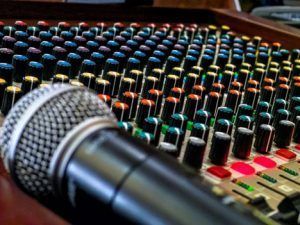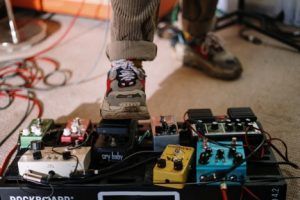We all share a universal love for music. For avid audiophiles, having high-quality sound equipment is important to bring out the best possible audio stream they want to hear. The technology behind audio systems and devices is continuously evolving, with more and more gears being available in the market. While keeping up with the audio technology trends is a good thing, it is also good to keep in mind your specific sound equipment needs and how much you can willingly spend.
To help you make smart purchase decisions, we’ll share here some tips on choosing high-quality sound equipment that’s within your budget.
Assess Your Sound Equipment Needs
A good purchase is usually rooted in meeting the needs of the buyer. It’s no different when you are about to buy sound equipment. You have to first determine what equipment you will need and for what purpose you’ll use the equipment. If you’re a casual music listener, you can narrow your options to a high-quality headphone for private music listening or a home audio set or speaker system if you want to let your favorite tunes be heard inside your home. Getting a tube amplifier is a good start if you are into playing electric guitars. A good amplifier system or sound mixer system would also be a good purchase option if you have a garage studio for band practice and music recordings. Being in tune with what you need can help you get a firm grip on what you want to buy.
If you use a lot of pedals of digital effects, then you are certainly will be making tweaks on your pedals before recording. Not all amplifier respond well to certain pedals so you will have to compromise in some areas. The bottom line is a premium sound requires premium recording equipment and tuning
Review the Equipment Specifications and Features
Once you have an idea of the type of equipment you need, it’s time to look deeper into the specifications and performance of the equipment. You’ll need to consider if the equipment can keep up with your specific musical requirements, such as crisp sound output, portability, settings, and convenience of operation. For example, when choosing a microphone, choose one that has a good response system to make your voice sound better. The bass response needs to be checked according to your vocal type and range. Also, check if the mic can let you produce crisp and clear “S” sounds and “P” sounds that don’t sound like explosions. Bring a companion to listen to you speak on the mic to help determine which mic best makes you sound natural. In the same way, study the specifications and features of other sound equipment you want to purchase before deciding to buy them. Test the equipment as thoroughly as possible so that you have an idea of what’s in store for you.
Check on the Dependability and Durability of the Equipment
These two qualities can be closely tied to your purchase budget. Check the brands that offer your kind of equipment and review their track record and the feedback of the users of their products. You need sound equipment that you can use for a long time. While the equipment price may prompt you to choose the cheaper equipment, you also need to ask yourself how long will the cheap equipment last. It can be financially unwise to buy sound equipment that costs $750 but breaks down every two years compared to buying equipment that costs $1200 but lasts ten years. There’s also the retention of good equipment performance over a long time, which you can rely on from a slightly pricier product. Also, consider the future repair costs of the system and the availability of service years after the purchase. Having a piece of equipment that stays with you for a long time can give you a long-term cost advantage.

There are many things you need to consider when it comes to buying high-quality sound equipment. You have to balance your sound equipment needs, the sound equipment performance, and the most cost-effective purchase option. When it comes to sound equipment, it’s not just the excellent performance that meets your personal sound preferences that matter, but also the reliability of the equipment in giving that same performance for years to come. That’s where the cost-efficiency of your purchase lies.









 The 2024 virtual Men’s Round Table will be held Q4, 2024, date TBD.
The 2024 virtual Men’s Round Table will be held Q4, 2024, date TBD.













